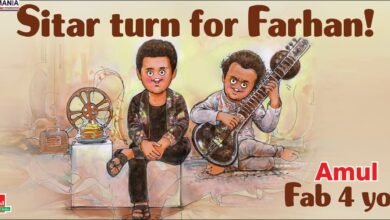Psychiatrist-Turned-Novelist Explores Deep Human Psyche in Fiction

News Mania desk/Agnibeena Ghosh/22nd May 2024
Great novelists craft characters that are complex, unique, and resonate with relatable human emotions and needs. Joyce Carol Oates, a celebrated contemporary novelist, exemplifies this with her diverse array of memorable characters, from a hippie to an imagined Marilyn Monroe, to a teenage boy. During a meeting with a fellow novelist, she remarked, “You’re a psychiatrist and a novelist. What a great combination!”
This combination of psychiatry and novel-writing is indeed unique. While some outstanding novelists, such as Dr. Daniel Mason, blend their psychiatric expertise with their literary talent, non-psychiatric physicians like Dr. Abraham Verghese also create psychologically rich characters. Furthermore, literary giants such as Dickens, Tolstoy, and Dostoevsky were neither psychiatrists nor physicians, yet their characters remain some of the most intricate in literature.
So, why is the combination of psychiatry and novel-writing seen as exceptional? Humans are inherently fascinated by others and their behaviors. From childhood, stories about how people navigate challenging situations captivate us. Psychiatrists have an added advantage: in their clinical work, they gain deep insights into people’s private thoughts and feelings, their fears, and their coping mechanisms in traumatic situations. They observe how individuals change and grow, providing a rich well of knowledge to create fictional but psychologically realistic characters.
However, when it comes to writing, physicians face a disadvantage. They are trained to write clinical case histories in a rigid format, unlike the narrative style required for fiction. To write compelling characters, physician-authors must shed this ingrained pattern of straightforward reporting.
The process of writing fiction might not differ significantly for psychiatrists compared to other novelists. The novelist must spend countless hours imagining, writing, and rewriting. This demanding process requires a topic that fascinates the writer enough to invest the necessary months and years.
For instance, the idea for the novel “The End of Miracles,” a psychological suspense story, stemmed directly from clinical experiences. Over a few months, three women with pseudocyesis, a condition of extended false pregnancy, were evaluated. This clinical interest and the scientific curiosity about their hormone levels inspired the creation of a character who develops pseudocyesis.
The appeal of this topic became clear during the writing process. There was a long-standing creative urge to write a novel and contribute to literature, fueled by the joy of reading fiction since childhood. Additionally, as a psychiatrist, there was a desire to portray psychiatrists accurately, challenging the stereotypes often seen in books and films, and to show that individuals with serious mental illness are not so different from the rest of us.
The writing process involved adopting an actor’s approach: becoming the characters and listening to their inner monologues. This method made it easier to write the chapters involving the psychiatrist, by imagining therapeutic sessions with the main character, Margo.
A crucial aspect was to ensure Margo’s thoughts and actions were rooted in her psychology. This required weaving her present feelings and behaviors with past experiences to create a coherent and believable character. Techniques from thrillers were used to build tension and keep readers engaged, with short, suspenseful chapters ending on cliffhangers.
The publication of “The End of Miracles” was a mixture of joy and a momentary sense of loss, akin to the experience of childbirth: a private, intimate relationship with the work ends as it is shared with the world. Choosing the right narrator for the audiobook was an important decision, as the narrator becomes a co-creator of the story. Positive feedback from readers and listeners confirmed that the right choice was made.
An amusing anecdote from this journey involves the author’s teenage grandson, who shared on Facebook that listening to the audiobook was a relief, as he preferred hearing certain phrases in the narrator’s voice rather than his grandmother’s.
This unique blend of psychiatry and novel-writing not only enriches the fictional characters but also provides a deeper understanding of human psychology, offering readers an engaging and authentic literary experience.






